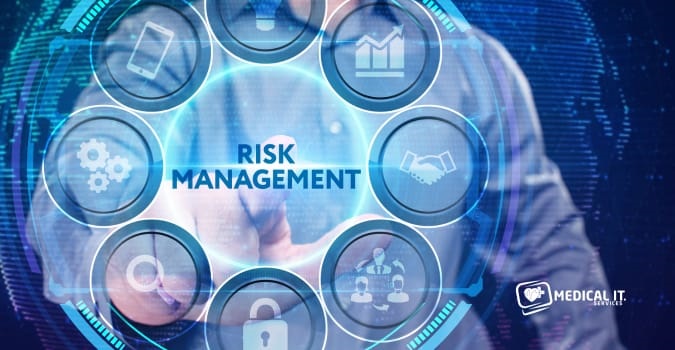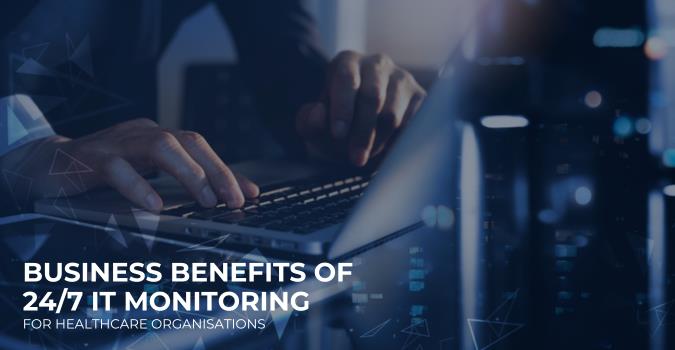Healthcare organisations rely on robust IT systems to manage patient records, facilitate telemedicine and support…

Why is Security Risk Assessment Important for Healthcare Providers?
The healthcare industry relies heavily on information technology and data to provide efficient and quality care to patients. However, this increased reliance on digital systems also exposes healthcare providers to a range of security risks. Cyber attacks on healthcare systems have become more sophisticated and prevalent, making it crucial for healthcare providers to prioritize and improve their security posture. In this article, we will explore the importance of security risk assessment and how it can mitigate potential threats in the healthcare industry.
Importance of Security Risk Assessment
A security risk assessment is an important process that identifies, assesses, and implements key security controls in applications and infrastructure. Here are some reasons why security risk assessment is important:
Identifying Vulnerabilities:
Security risk assessment enables healthcare providers to identify vulnerabilities in their systems, networks, and processes. By conducting comprehensive assessments, organizations can proactively identify potential weaknesses and address them before they are exploited by cybercriminals. This helps in building a robust defense against evolving threats.
Protecting Patient Data
A security risk assessment helps identify potential risks and vulnerabilities to the confidentiality, integrity, and availability of patient information. By understanding these risks, healthcare practices can implement appropriate security measures to protect patient data from unauthorized access, breaches, and misuse.
Compliance with HIPAA Regulations
Healthcare providers are subject to the Health Insurance Portability and Accountability Act (HIPAA), which sets standards for the protection of patient health information. HIPAA requires healthcare organizations to conduct regular risk assessments to ensure compliance with administrative, physical, and technical safeguards. By performing security risk assessments, healthcare providers can identify areas where they may not be fully compliant with HIPAA regulations and take corrective actions to mitigate risks and avoid potential penalties.
Proactive Approach to Cybersecurity
The future of cybersecurity in healthcare is constantly evolving, with new threats and vulnerabilities emerging regularly. By conducting security risk assessments, healthcare providers can stay ahead of potential cyber threats and take a proactive approach to cybersecurity. Assessments help identify weaknesses in security controls, systems, and processes, allowing healthcare organizations to implement necessary measures to strengthen their defenses. This proactive approach can help prevent cyber-attacks and minimize the impact of any potential breaches.
Safeguarding Against Cyber Attacks:
The healthcare sector has become a prime target for cybercriminals due to the value and sensitivity of the data it holds. Security risk assessment help providers assess the cybersecurity posture of their systems, applications, and devices. By identifying vulnerabilities and implementing appropriate controls, such as encryption, access controls, and intrusion detection systems, healthcare providers can better protect their IT infrastructure and prevent unauthorized access or data breaches.
Enhancing Incident Response Preparedness
In the event of a cyber-attack or data breach, healthcare providers need to have effective incident response plans in place. Security risk assessment can help identify gaps in incident response preparedness and enable healthcare organizations to develop robust response strategies. By understanding potential risks and vulnerabilities, healthcare providers can establish protocols for detecting, containing, and mitigating security incidents, minimizing the impact on patient care and organizational reputation.
Disaster Recovery and Business Continuity:
Cyberattacks can cause significant disruptions to healthcare operations, leading to delayed treatments, compromised patient care, and financial losses. By conducting security risk assessments, providers can evaluate the resilience of their IT systems, identify potential points of failure, and develop robust disaster recovery and business continuity plans. This ensures that essential services can be quickly restored in the event of an attack, minimizing the impact on patient care.
Conclusion
In an era of advanced technology and evolving cyber threats, healthcare providers must prioritize security risk assessment. Protecting patient privacy, mitigating data breaches, ensuring regulatory compliance, and safeguarding reputation are just a few of the compelling reasons why healthcare organizations should invest in comprehensive security risk assessments.
By partnering with trusted IT service providers like MedicalIT.Services, healthcare providers can proactively address vulnerabilities, strengthen data security, and instill confidence in patients. Embracing a proactive approach to security is crucial in an industry that holds the trust and well-being of millions of patients.
Also Read:



